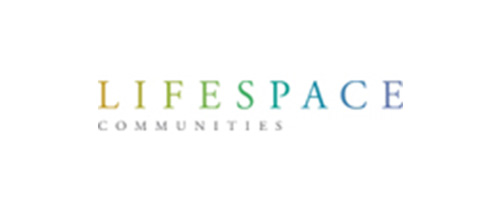Nutrition and thriving after Cancer
Living a healthy lifestyle as a cancer survivor is very important. While studies are ongoing, there is definitive research showing certain behaviors and foods can help improve long-term health after cancer.
Cancer survivors benefit in many ways from a healthful lifestyle, and the more ways you can help them include these recommendations in their daily living, the greater the benefits. In a cross-sectional study of adult cancer survivors only 30-47% met the physical activity recommendation and about 15-19% met the five-a-day minimum vegetable and fruit target. Active aging professionals can help older adults meet their exercise and nutrition goals to promote good health. The information below outlines different recommendations and tips to provide older adults.
Physical Activity
Physical Activity helps reduce the risk of a recurrence for cancer survivors. It also improves mood, increases stamina, decreases anxiety, and helps with recovery from cancer treatments. For older adults who gained or lost weight during treatment, the right type of physical activity can help them achieve a desirable body weight, depending on if they gained or lost weight during treatment.
The American Cancer Society (ACS) has physical activity recommendations for cancer survivors. Provide these tips to the older adults you work with to help them meet the ACS recommendations:
- Exercise 5 or more days a week, 30 minutes per session
- If there was weight loss during treatment, don’t be discouraged, start small—every minute of activity will improve strength and endurance
Diet
Once treatment is over, older adults should be encouraged to return to their typical eating patterns. Provide older adults with the following tips to ensure they are meeting their nutrition needs:
- Eat 5 servings daily of fruits and vegetables
- Dark green, leafy vegetables like spinach, kale and beet greens are great choices, especially when prepared with garlic and turmeric
- Dark green, leafy vegetables like spinach, kale and beet greens are great choices, especially when prepared with garlic and turmeric
- Use fresh herbs such as rosemary, mint, thyme, oregano and basil—these herbs have documented medicinal properties related to the terpenes in their essential oils
- Terpenes have been shown to exert anti-tumorigenic effects and may help prevent inflammation
- Choose whole grains such as bulgur, barley, oats and brown rice—these grains are a good source of saponins
- Saponins area water and fat-soluble plant compound that can act like an antibiotic
- Choose lean protein sources such as fish, poultry, beans, nuts & seeds, and tofu
- Fatty fish such as salmon, tuna, herring, cod and sardines are good protein options—these choices also have the added benefit of being rich sources of healthy, omega-3 fatty acids, which plays a vital role in boosting immunity

Food safety at every meal is still important since; infection is a big concern among survivors.
- When dining out:
- Avoid sushi, salad bars, rare meats, fish and shellfish, poultry and eggs—these items have a greater prevalence of germs
- When cooking at home:
- Scrub fruit and vegetables well
- Avoid raw honey and raw juices, selecting pasteurized varieties instead;
- Cook meats thoroughly
- Keep your refrigerator and all utensils, cutting boards and counters clean,
- Replace dish sponges weekly
Survivors should make behavior changes that support recovery and long-term health, and registered dietitian nutritionists (RDNs) can help survivors meet these needs. Active Aging professionals should refer survivors to RDNs to help them meet nutritional needs and improve outcomes relevant to cancer, cardiovascular, and bone health. You can find an RDN through the Academy of Nutrition and Dietetics “Find an Expert” page.

Jyoti Benjamin is a Fellow of the Academy of Nutrition and Dietetics and a certified specialist in Oncology Nutrition, with a Masters in Foods and Nutrition, is currently working as a clinical dietitian. Jyoti is also a Member of Academy of Nutrition and Dietetics and the Oncology Practice group of the academy.
Note: This information is not intended to replace a one-on-one relationship with a qualified healthcare professional and is not intended as medical advice. It is intended as a sharing of knowledge and information from research. The view expressed here are not necessarily those of the ICAA, we encourage you to make your own health and business decisions based upon your research and in partnership with a qualified professional.
Share



































